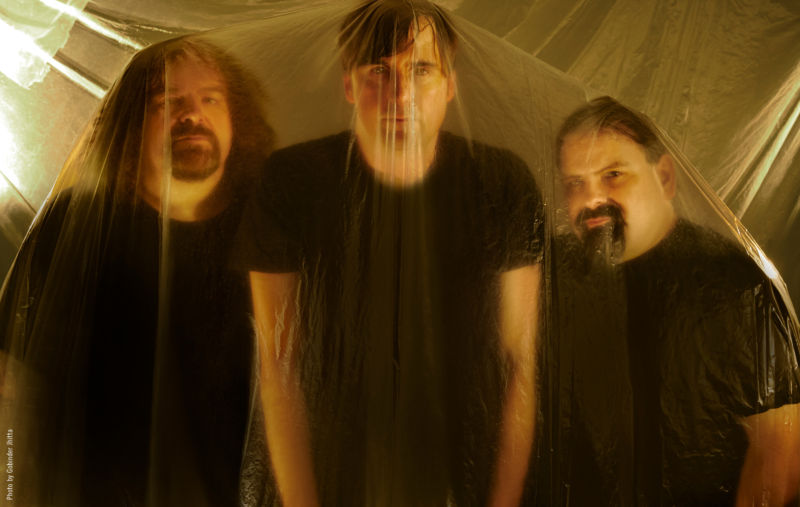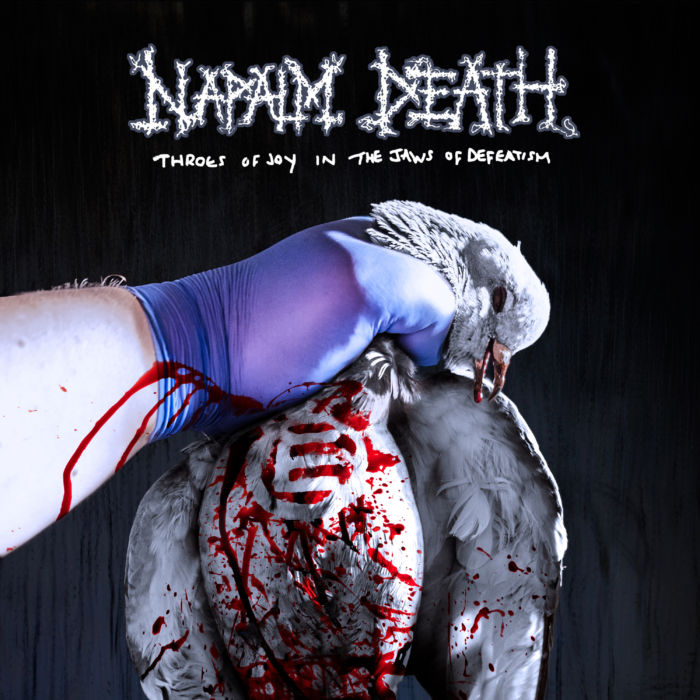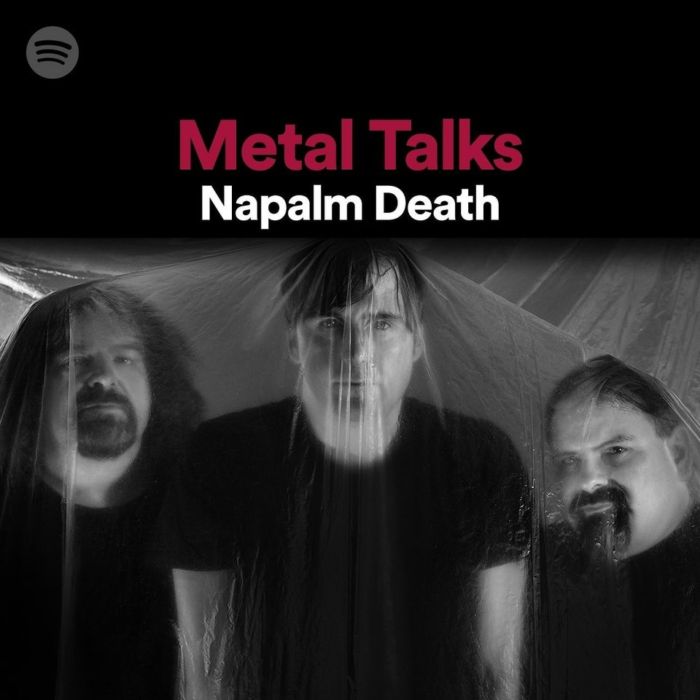Project Description
Interview with
Mark ‘Barney’ Greenway
from
NAPALM DEATH
(September 2020)
Interviewer – Jacob Morris
.

.
“…they’ve delivered one of their most experimental releases without sacrificing identity or integrity” – Consequence Of Sound
“Napalm Death express a lot of things here – anger, bitterness, fear, uncertainty – but defeat? Not a bit of it.” – Kerrang!, 4/5
“More than an avalanche of infectious mosh anthems.” – Metal Injection, 9/10
“Pointed fury and righteous aggression” – Loud Online, 95/100
“Napalm Death return with a fresh bag of bludgeoning hammers on Throes of Joy In The Jaws of Defeatism.” – Wall Of Sound
.
.
Napalm Death have been credited as the engineers of the grindcore genre. Do you think grindcore is still an accurate description of your sound?
I would say so principally because it was Mick, the previous drummer who came up with the term grindcore. People picked it up and ran with it after that. It referred to anything that was ridiculously fast and furious and painfully slow and miserable. It was all points in between. Definitions are always open to debate, me personally I would say yes. Napalm Death still have all the characteristics that made an impression on people in the first place. Grindcore was never a genre to play it safe and stick within so on that basis I would say yes.
The track “You Suffer” from the band’s debut album “Scum” has been acknowledged by the Guinness World Records as the shortest song ever recorded. Do you think shorter songs provide a certain distinct effectiveness?
They are an art statement. It’s basically saying I’ve said what I need to say in a number of seconds. In the wider scope, music in some respects can also be very stiff. There are some rules that have come into music and the idea of a few seconds is unfathomable to some people. It does what it needs to do. In the history of hardcore there is a culture of short to the point songs.
The band’s discography spans over 3 decades. Why do you think people still resonate with your music?
Because the band has been forward looking and has tried to not be a carbon copy of previous albums while also acknowledging that we want to play the music still from the 80s and 90s. There’s a good balance between the music and the root ideas. On the lyrical side, the ideas themselves, they still resonate with people. I think that mix of everything makes people still curious about the band. We still feel we have a bit to offer creatively. The day that ceases to become the case, I won’t do it anymore. I’m not interested in doing an approximation of Napalm Death.
“Throes of Joy in the Jaws of Defeatism” is the band’s first full length in five years, which makes it the longest gap between studio albums. Were there any challenges that affected the writing process of the record?
Not really, I mean of course it looks as if it took a bit longer than what it normally would, but you’ve got to remember this on real terms; it wasn’t actually started until September 2017, so that actually makes it two and a half years, which is pretty standard. There was an extra two years between that album and the last album, and to be honest a lot of it was just touring, you know the band is so much in demand to play places, also when we record albums, we tend to record it sporadically, so we’ll do one day here, two days there and then might not do anything for a couple of months and then do some more.
How would you describe the sound of the new record? What were some of the new styles of sound that the band hadn’t explored before on previous albums?
All of it is stuff we have done before to some degree. Although I think it’s more the wide palette of influence that we’ve got beyond grindcore, like post rock, noise rock, harsh industrial sounds which were all there before anyway. With this being our 16th album, we hope that after that amount of time the chemistry between the band’s songwriting would continue to improve. I think that’s the key point, it’s not that there’s anything radically new on the album it’s just that we have learnt to amalgamate the various influences better within songs. Nowadays I would suggest implementing 4 different styles within one song and I think that’s a good thing.
.
.
The theme of the record is “the treatment of the other, the perception of the other and the reaction to the other.” What are some of the main specific ideas behind this theme?
First of all, the urgency. We have governments currently around the world and in Europe as well that use the language of marginalisation and dehumanisation of groups within the community to further their own ends. To solidify their power. A couple of examples that I generally use, firstly, refugees. The way these people are spoken about sometimes, people who are just trying to attain a little bit of dignity like the rest of us, you know, a bit of safety. I just find it to be tragic because they are just fellow human beings that people are referring to as trash. That’s for one thing, and as another example; LGBTQ+ community. They have suffered great marginalisation over the last few years. One government in particular in Europe makes the point of using Anti-LQBTQ+ ideas and proudly proclaim that they have gay free zones in places in the country and again, I find that to be tragic but also pretty dangerous because you have to remember that in the 1930s we had very charismatic people who used that kind of language to solidify their own race and what that eventually led to was, of course, mass murder. So, I thought it was quite urgent to deal with that stuff and also of course, in Napalm Death’s writing to say that these are human beings, and this is not acceptable.
The album artwork juxtaposes a hint of positivity amongst overwhelming negativity, suggesting a light at the end of the tunnel. Does the album’s lyrical subject matter offer a glimpses of hope for society in its messages?
Well there are always glimpses of hope I think in the sense that Napalm Death is only a small part of it but we keep plugging away, we don’t give up so that I guess is the hopeful part of it. Within the lyrics, we just offer a rejection of the ideas of marginalisation, dehumanisation and separation based upon the traits and characteristics of people. That’s what we do, we have always done that in fairness and we will continue to do that because the world around us always throws up these challenges so it’s for people that believe in human beings and humanity to keep on being the antithesis of that sort of negativity.
During early United States tours you received backlash from select audience members who opposed some your messages. Is this a common reaction the band faces for expressing passionate concepts in your songwriting?
We do get it from time to time, not so much as we used to in the 90s though. I don’t have too much of a problem with it because I don’t reject other people’s opinions. What I do object to is when you do get types who go in there to not only, obviously, offer opposition to the band but also to bully people in the audience, because they like to use violence to make a point. So yeah, we do get it from time to time, less and less or so these days. We probably get one or two a year at the most now, whereas in those early US tours that you refer to, it was every two or three days! Pretty wild and I have to say, very depressing, not really what everybody needs. You cannot expect everybody to be on board because life doesn’t work like that and I’m fully prepared for that.
You played in South Africa during 1993 which became controversial as you faced a lot of opposition from white supremacists. Can you share what that experience was like?
It was an incredibly positive one in the sense that we were going there with approval of the African National Congress. There was nothing controversial I wanted to say at that point, it was just about enhancing and forwarding basic humanity. The country was coming out of the Apartheid system, a very ethnically separated system based upon suppression of the indigenous majority. I had a lot of people basically being very verbally violent towards me and at that time I was revved up and I got really into it. These days I’d probably deal with it a little differently, but I was a little bit naïve and I was getting pretty heavy threats. So, it was negative in that sense, anytime you are faced with that sort of hatred, obviously not only directed at me but because of the people I wanted to stick up for. It was a strange experience, but we got through it and I think positively about being able to play for people and doing our best to add to the ideas that we are circulating. Overall, I look upon it as an achievement.
Of all the songs on the new album, which ones were you the most excited for fans to finally hear?
I find it hard to pick, there’s a few I can highlight. “Backlash Just Because.” I also think “Invigorating Clutch,” I think “Joie de Ne Pas Vivre” which is good because it’s only bass, no guitars. I think “A Bellyful of Salt and Spleen” is arguably the most full on. I guess you could kind of say the most traditional Napalm Death song is the title track, “Throes of Joy in the Jaws of Defeatism.” I think there’s lot of stuff on the new one, there’s something for everybody, whatever their particular preference is in terms of the substyles of Napalm Death. It does a lot of things, this album.
Buy THROES OF JOY IN THE JAWS OF DEFEATISM HERE
.
THROES OF JOY IN THE JAWS OF DEFEATISM
Track Listing:
01. Fuck the Factoid
02. Backlash Just Because
03. That Curse of Being in Thrall
04. Contagion
05. Joie De Ne Pas Vivre
06. Invigorating Clutch
07. Zero Gravitas Chamber
08. Fluxing of the Muscle
09. Amoral
10. Throes of Joy in the Jaws of Defeatism
11. Acting in Gouged Faith
12. A Bellyful of Salt and Spleen
.
.
Follow NAPALM DEATH
.
Barney’s
Metal Talks
Episode
.
NAPALM DEATH
Release their new studio album
‘Throes Of Joy In The Jaws Of Defeatism’
today
Check out the full news post HERE
.









